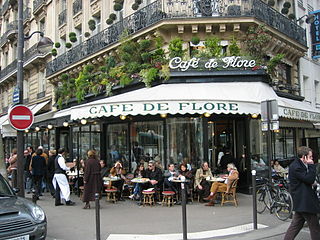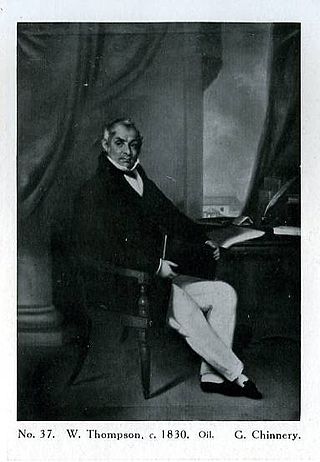
In moral philosophy, consequentialism is a class of normative, teleological ethical theories that holds that the consequences of one's conduct are the ultimate basis for judgement about the rightness or wrongness of that conduct. Thus, from a consequentialist standpoint, a morally right act is one that will produce a good outcome. Consequentialism, along with eudaimonism, falls under the broader category of teleological ethics, a group of views which claim that the moral value of any act consists in its tendency to produce things of intrinsic value. Consequentialists hold in general that an act is right if and only if the act will produce, will probably produce, or is intended to produce, a greater balance of good over evil than any available alternative. Different consequentialist theories differ in how they define moral goods, with chief candidates including pleasure, the absence of pain, the satisfaction of one's preferences, and broader notions of the "general good".

John Stuart Mill was an English philosopher, political economist, politician and civil servant. One of the most influential thinkers in the history of liberalism, he contributed widely to social theory, political theory, and political economy. Dubbed "the most influential English-speaking philosopher of the nineteenth century" by the Stanford Encyclopedia of Philosophy, he conceived of liberty as justifying the freedom of the individual in opposition to unlimited state and social control.
In ethical philosophy, utilitarianism is a family of normative ethical theories that prescribe actions that maximize happiness and well-being for the affected individuals. In other words, utilitarian ideas encourage actions that lead to the greatest good for the greatest number. Although different varieties of utilitarianism admit different characterizations, the basic idea behind all of them is, in some sense, to maximize utility, which is often defined in terms of well-being or related concepts. For instance, Jeremy Bentham, the founder of utilitarianism, described utility as the capacity of actions or objects to produce benefits, such as pleasure, happiness, and good, or to prevent harm, such as pain and unhappiness, to those affected.

Jeremy Bentham was an English philosopher, jurist, and social reformer regarded as the founder of modern utilitarianism.

The panopticon is a design of institutional building with an inbuilt system of control, originated by the English philosopher and social theorist Jeremy Bentham in the 18th century. The concept is to allow all prisoners of an institution to be observed by a single corrections officer, without the inmates knowing whether or not they are being watched.

A coffeehouse, coffee shop, or café, is an establishment that serves various types of coffee, espresso, latte, americano and cappuccino. Some coffeehouses may serve cold beverages, such as iced coffee and iced tea, as well as other non-caffeinated beverages. A coffeehouse may also serve food, such as light snacks, sandwiches, muffins, cakes, breads, donuts or pastries. In continental Europe, some cafés also serve alcoholic beverages. Coffeehouses range from owner-operated small businesses to large multinational corporations. Some coffeehouse chains operate on a franchise business model, with numerous branches across various countries around the world.

William Thompson was an Irish political and philosophical writer and social reformer, developing from utilitarianism into an early critic of capitalist exploitation whose ideas influenced the cooperative, trade union and Chartist movements as well as Karl Marx.

Utilitarianism is an 1861 essay written by English philosopher and economist John Stuart Mill, considered to be a classic exposition and defence of utilitarianism in ethics. It was originally published as a series of three separate articles in Fraser's Magazine in 1861 before it was collected and reprinted as a single work in 1863. The essay explains utilitarianism to its readers and addresses the numerous criticism against the theory during Mill's lifetime. It was heavily criticized upon publication; however, since then, Utilitarianism gained significant popularity and has been considered "the most influential philosophical articulation of a liberal humanistic morality that was produced in the nineteenth century."

St Mary Aldermary is an Anglican church located on Bow Lane at the junction with Watling Street, in the City of London within the United Kingdom.

The High Street in Oxford, England, known locally as the High, runs between Carfax, generally seen as the centre of the city, and Magdalen Bridge to the east.

The Main Building of University College London, facing onto Gower Street, Bloomsbury, includes the Octagon, Quad, Cloisters, Main Library, Flaxman Gallery and the Wilkins Building. The North Wing, South Wing, Chadwick Building and Pearson Building are also considered part of the main UCL building.

The Café Procope, also known as Le Procope, on the Rue de l'Ancienne Comédie, is a café in the 6th arrondissement of Paris. The original café was opened in 1686 by the Sicilian chef Procopio Cutò ; it became a hub of the Parisian artistic and literary community in 18th and 19th centuries. It sometimes is erroneously called the oldest café of Paris in continuous operation; however, the original café closed in 1872 and the space was used in various ways before 1957, when the current incarnation was opened; so the claim of "oldest café in continuous operation" is not supported.

Queen's Lane is a historic street in central Oxford, England, named after Queen's College, to the south and west. St Edmund Hall, a constituent college of the University of Oxford, is located on the southern end of this street.

New Inn Hall Street is a street in central Oxford, England, and is one of Oxford's oldest streets. It is a shopping street running north–south parallel and to the west of Cornmarket Street, with George Street to the north and Bonn Square at the west end of Queen Street to the south. St Michael's Street leads off the street to the east near the northern end. Shoe Lane to the east leads to the Clarendon Centre, a modern shopping centre.

Little Holland House was the dower house of Holland House in the parish of Kensington, Middlesex, England. It was situated at the end of Nightingale Lane, now the back entrance to Holland Park and was demolished when Melbury Road was made. Number 14 Melbury Road marks its approximate location.

Café Allegro is a coffeeshop in the University District of Seattle, Washington, United States. It is notable for being one of the city's first espresso shops and for its role in the history of Starbucks, as the place where founding proprietor Dave Olsen designed the Starbucks coffee product line. Situated in an alleyway, the cafe features multiple entrances and rooms.
The Collected Works of Jeremy Bentham is a series of volumes under production at the Bentham Project which, when complete, will form a definitive edition of the writings of the philosopher and reformer Jeremy Bentham (1748–1832). It includes texts which Bentham published during his lifetime; and also the many texts which remained unpublished at his death, and which exist only in manuscript.
James Henderson Burns was a Scottish historian of medieval and modern political thought who also studied utilitarianism and Jeremy Bentham.

The Holywell Music Room is the city of Oxford's chamber music hall, situated on Holywell Street in the city centre, and is part of Wadham College. It is said to be the oldest purpose-built music room in Europe, and hence Britain's first concert hall.
















